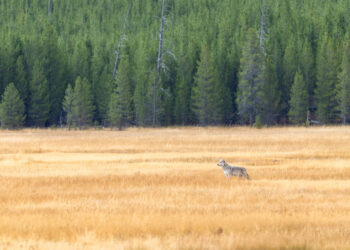This is the fourth in a series of interviews with the Montana candidates for the U.S. House of Representatives
By Taylor Anderson
Explorebigsky.com Assistant Editor
 Sen. Kim Gillan, D-Billings was
Sen. Kim Gillan, D-Billings was
first elected to the Montana House
in 1996. She’s been elected six times
and served four terms in the Montana
House and two in the Senate.
She’s running for U.S. House of
Representatives.
TA I think the best way to get a look at
what you stand for is to look at some
of the bills you sponsored from the
last session. It looks like many of
your drafts focused on the treatment
and efficiency of health care
employees in Montana. How and
why did that come about?
KG While last year’s bills are important,
look at what I’ve done over the
last eight years. The first are things
that affect economic development
particularly small businesses and
employees or job creation. In 2009
I was able to pass a work force training
program for small businesses.
In 2011, I put in a resolution to
look at the health care work force
needs. While I’ve worked in health
care, these last couple sessions I’ve
worked in economic development
and job creation.
TA You’ve hit on some hot topics
as of late especially in national
politics. Obviously if there was
a set answer we wouldn’t be
having the debate, but when you
say job creation and economic
development, how were you able
actually do it?
KG One thing is looking at Montana’s tax
policies and pushing bills that made
sure we had fair and
balanced tax policies for
both small business and
individuals, not just
corporate. I have carried
a business equipment
targeted tax break,
which focuses primarily
on small businesses.
I believe in targeted,
very specific tax incentives,
let’s say for wind
power or whatever. The
bulk of taxpayers in
Montana are individuals,
employees, and
wage and salary earners.
[We need] to make
sure tax policy doesn’t
put burden on any
group of individuals.
TA You’ve hit on another
term we’ve been
hearing a lot lately,
especially in Montana politics, ‘fair
and balanced.’ Explain how you get
a fair and balanced tax plan.
KG I’m always looking at whether there is
equal treatment of all taxpayers, which
is in the Montana Constitution. Making
sure when we give one person a tax
break that we don’t shift it onto another
tax group. If you give a break to a larger
business that’s great, but to make up the
difference you don’t want to shift the
burden onto homeowners.
TA The U.S. House needs help solving
tax issues right now. If elected, how
would your stance on tax issues
benefit the national economy?
KG There are a lot of changes proposed to
the federal tax system. My perspective
and understanding of Montana tax policy
would be helpful, because I know
the value of closing tax loopholes–
[and] there are some loopholes in the
national policy. Making sure when we
use tax incentives, they really target the
industry group that needs them, that
they don’t unfairly shift the burden
onto other folks.
My understanding of tax policy will
give me a good perspective. My work
on trying to formulate state policy will
help me with looking at federal tax
proposals and how they’ll affect working
families.
In our legislature we had to find common
ground. I hope in the U.S. House
we can find common ground where
we find deficit reduction, increased
revenues and increased economic
activities, making sure we get rid of
waste in the system, and closing tax
loopholes.
TA Politicians in Washington are
pretty polarized right now, to
the point that there is a 9 percent
approval rating of Congress.
Some say the only way to
fix the gridlock is to recycle the
politicians during the 2012 elections.
Faced with this polarization,
how would you go about
getting cooperation?
KG Part of it is my attitude and track
record and [ability] to find a way to
get people to work together. I’ve
carried and passed two insurance
mandates. I organized a coalition and
got insurance mandates for diabetes
and autism. That’s one of the skills
and perspectives I bring.
In the last legislative session the
House was gridlocked … [in] the
session, [and] I was in charge as the
whip. We knew we had to tackle issues,
we figured out the four or five
things we needed to do and [that] we
might be able to get those done. I’ve
had practical experience breaking
through gridlock and getting things
done.
TA One big issue, especially during
this last session in Montana, is the
cost of higher education. I don’t
think anyone is going to line up
against someone that says they are
against raising costs of college, yet
tuition has consistently risen in
the past five years. Why?
KG This is the reason I first went to the
legislation was K-12 schools. For me,
education is a personal value. I also
consider it key to the economy. I’m
troubled that we are making affordability
and access to higher education
restricted.
When Congressman Rehberg said
Pell grants were the equivalent of
corporate welfare, that was shocking
to me, because hardworking Montana
families are struggling to go to
college. The average debt for students
leaving Montana universities is
$21,000.
If the cost of public education is skyrocketing,
I’ll go back to make sure
that student loans and Pell grants are
still available for the folks who need
them to go to school. Our nation and
Montana’s economic future depends
on having a well-educated workforce.
TA Montana politicians in Washington
carry a certain clout and have
an ability to get things done. If
elected, how would you work to
follow the guidelines set by your
predecessors?
KG In the U.S. House I’ll bring a Montana
common sense. I don’t want to copy
Jon [Tester] and say I’m gonna ‘Git-er
done’. We need to deliver results, and
that’s going to be my focus, using the
skills and tools that I’ve developed in
Montana Legislature.
If I’m going to be one voice in U.S.
House I’m gonna be sure it’s clear
and strong. That’s my track record in
legislature. Find common ground. I’m
going to champion Montana’s needs
and concerns.
TA You’ve listed on your website that
you are interested in energy development,
but you have listed oil, gas,
wind, other renewables. Does this
reflect an ideal held that you understand
there are jobs in both traditional
and renewable energies?
KG Montana is blessed with energy
resources. We need to develop those,
particularly in the area of renewables.
Bozeman just got a 67 million grant
to develop clean coal tech. The wave
of the future is to build upon Montana’s
renewable resources. Not at the
expense of traditional. We have coal
resources, [and] we need to develop
those in an environmentally responsible
fashion.
I’m committed to advocating for
expansion of Montana’s renewable
energy base. In the short term there is
no immediate substitute to get off of
oil and coal. We’re an energy jobs state.
In Washington the fed tax credits are
up, and if I were there I would support
those.
TA You’re from California originally.
How’d your pinpoint end up on
Montana?
KG I moved here in 1992 because I had
traveled here on business. I had visited
Montana and wanted to come here and
raise my family. My two kids went all
through school here. I was attracted to
the family friendly values of Montana.
[I] got involved in community activities
and worked on Native American issues.
I was raised in the Bay Area. I’m always
asked, ‘How did you get to Montana?’ I
always say, ‘I drove.’













